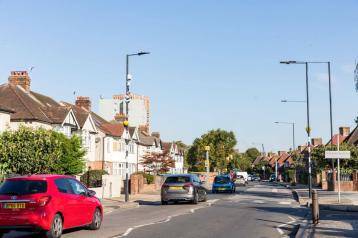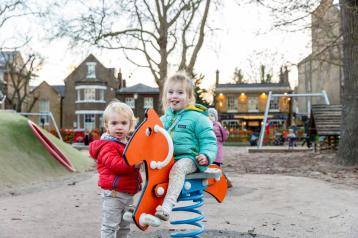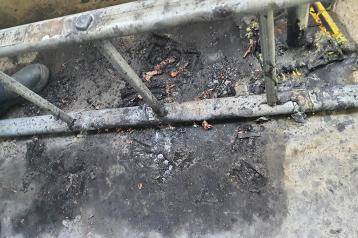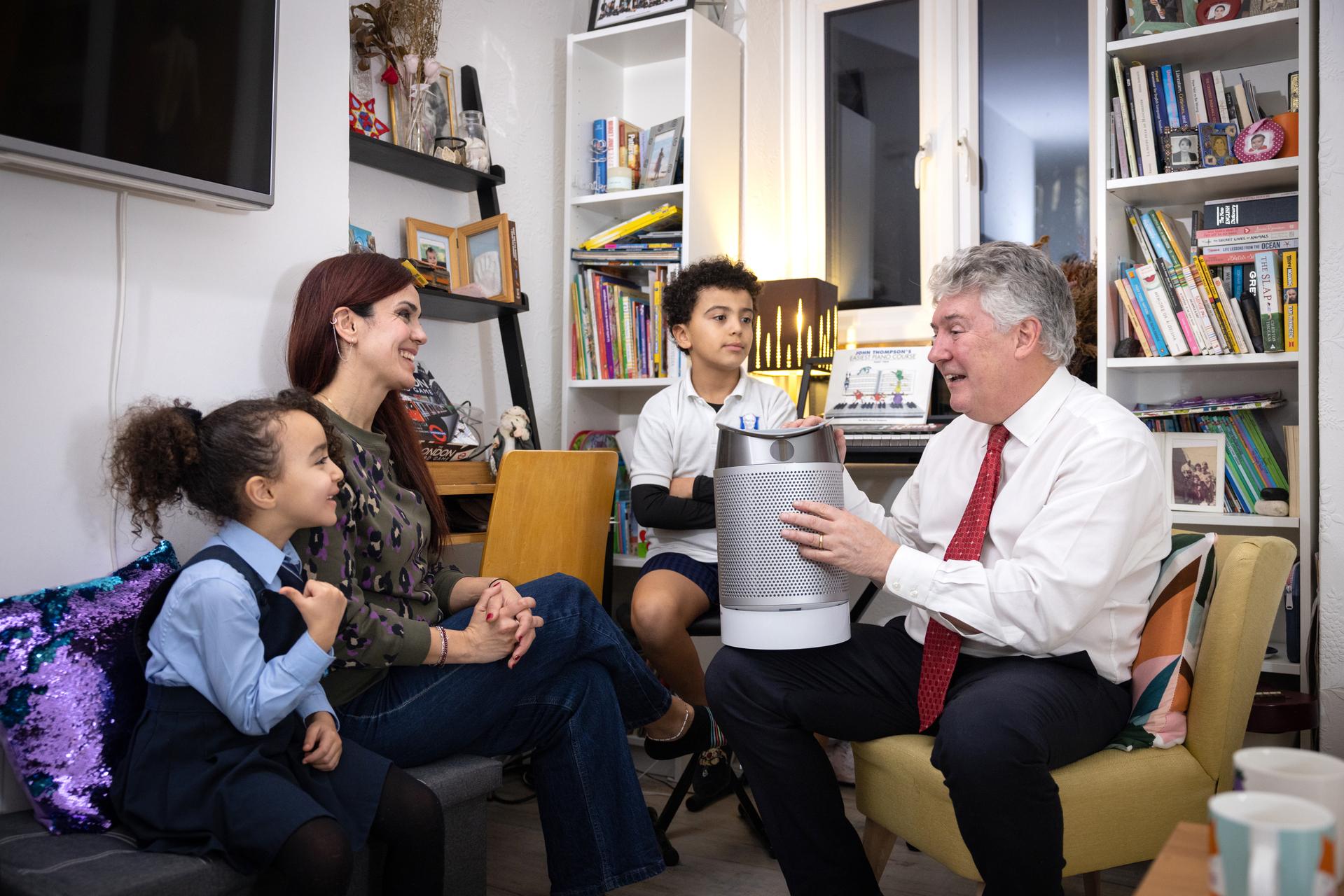
WellHome study participant Mounira (second from left) with her children Lisa (left) and Kamyl (centre) together with Professor Frank Kelly, leader of the Environmental Research Group at Imperial College London
Families with asthmatic children are invited to join Imperial College London's world-leading experts and find out how air quality affects our health.
The pioneering WellHome study will measure indoor air quality levels over a year, with participating families receiving up to £300.
Families across H&F and neighbouring boroughs can sign up now.
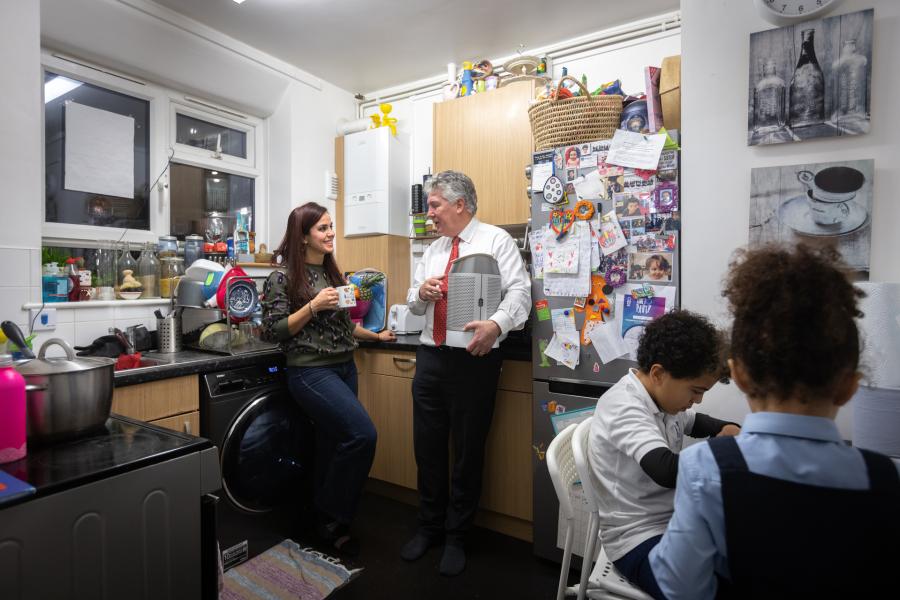
Toxic air
"I decided to take part in this project because of my children," said Shepherds Bush resident Mounira, mum to Kamyl (9) and Lisa (6).
Together with her children, Mounira has lived in Sundew Avenue for seven years. Just off the A40 – a major six-lane route running through the north of the borough.
"There is constant heavy traffic. I often wonder whether I am letting pollution in or out when I open my windows."
As the largest environmental risk to public health in the UK, poor air quality affects everyone. Especially those with pre-existing health problems. Many people will experience a significant decline in their health due to unclean air.
Mounira's daughter, Lisa, suffers from severe eczema – a long-term chronic condition that causes the skin to become itchy, dry and cracked. Air pollution is known to be a common trigger for flare-ups.
And although we spend approximately 90 per cent of our time indoors, almost all research on the topic has been on studies of outdoor air.
"The project can help me shed light on the level of these in our home," said Mounira.

Community led
"Being part of this project has already helped my family in so many ways," Mounira said. "It gave us the opportunity to take part in workshops and fun activities that have helped improve our knowledge about our air and health quality."
As part of the study, small and discrete sensors are used to measure air pollution, temperature and humidity levels inside the home, while samplers capture chemical, biological and microplastic contaminants.
Homes in the study will receive £300 for their contribution. They will be among the first in the UK to monitor seasonal air quality and will help inform future UK policy and decision-making on the issue.
"This opportunity will give your family the chance to be part of something interesting, fun, educational and hopefully shape our future," said Mounira.
Get involved
Imperial College London is looking for H&F households who:
- have at least one child with asthma
- are planning to reside at the same address for a minimum of 12 months
- do not have smokers living in the home.
Families with a W12 postcode or those who live by Ravenscourt Park, Brook Green, Wendell Park, Emlyn Gardens, Iffley Road, Frank Banfield Park or Parson's Green will be given priority.
Sign up now or learn more about the project in Imperial's short video on YouTube or participant information sheet.
For further questions, email Esther on wellhome@ic.ac.uk, or call 07596 955 261.
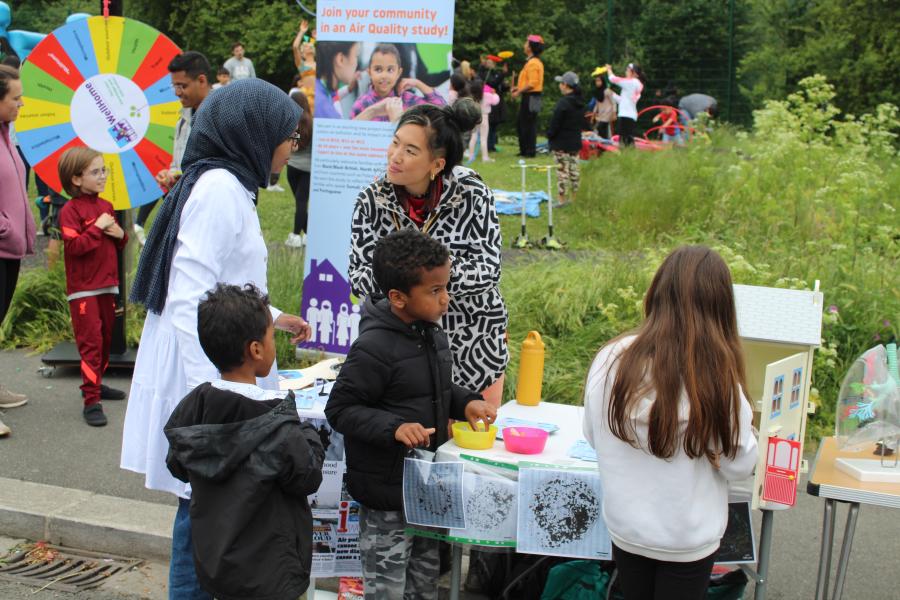
Ask About Asthma
Earlier this month the NHS ran their annual #AskAboutAsthma campaign to help children, young people and their parents and carers understand how to best manage asthma.
Asthma is one of the top three causes of emergency admission to hospital, with 1,375 children taken to hospital last year. One-hundred and thirty-two people in London were admitted into intensive care with an asthma diagnosis between 2021 and 2022.
Seventy-five per cent of these admissions would be avoidable through better asthma management, including regular asthma reviews, correct inhaler use, and knowing about the potential impact of air pollution.
Visit the NHS's campaign website to find out how to get involved.
Want to read more news stories like this? Subscribe to our weekly e-news bulletin

